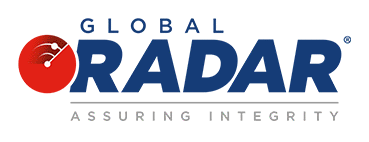The Financial Crimes Enforcement Network (FinCEN) announced this week that there will be a renewal and expansion of its Geographic Targeting Orders (GTOs) as we approach 2023. It seems like only yesterday that GTOs were implemented as a provision to the preexisting Bank Secrecy Act (BSA) as part of a greater effort to take action against money laundering and financial crime through the real estate realm. Six years later, the U.S. Treasury Department has continued to see tangible results from these efforts, with the government accruing invaluable data on potentially-suspicious persons involved in the purchases and sales of domestic properties.
Long before any discussions on the proper vetting of beneficial ownership structures became a realistic phenomenon, the real estate sector had been among the most commonly used – and arguably the most effective – method by which criminals acting both within American borders and abroad could launder their illegally obtained funds. When left unchecked, all-cash real estate purchases can not only cause the market to run awry, but also saturate it with dirty-money investments from foreign nationals, criminal and terror organizations, and drug cartels. Recognizing the threat that a notable influx of ill-gotten funds could have on the American financial system, not to mention the destabilizing effects that money laundering can have on the global scale, FinCEN enacted their pilot program as a means for title insurance companies to properly identify the natural persons and/or legal entities used when making cash, check, or virtual currency purchases exceeding a defined monetary threshold on residential properties in designated U.S. jurisdictions.
Under these GTOs, title insurance companies are required to investigate and document beneficial ownership. Any individual who directly or indirectly owns 25% or more of the equity interest of the Purchaser is considered a “Beneficial Owner.” In addition to the collection of the beneficial owner’s personal identification information (i.e. driver’s license, passport, etc.), covered businesses must also fill out FinCEN Form 8300 – used for reporting cash payments of over $10,000 received via trade or business – within 30 days of the covered transaction. The GTOs strategically target specific cities and counties that are known to law enforcement as hotbeds for suspicious real estate activity given their ties to lavish lifestyles. The jurisdictions initially outlined were widely seen as some of the more lucrative metropolitan areas in the United States (i.e. Miami, FL and the borough of Manhattan). Since the initial GTO was announced however, the number of covered jurisdictions has grown exponentially to include a total of 20 U.S. cities and counties. This list now includes: Boston; Chicago; Dallas-Fort Worth; Las Vegas; Los Angeles; Miami; New York City; San Antonio; San Diego; San Francisco; Seattle, the District of Columbia, Northern Virginia, and Maryland (DMV) area; as well as the City and County of Baltimore, the County of Fairfield, Connecticut, and the Hawaiian islands of Honolulu, Maui, Hawaii, and Kauai.1 FinCEN is also reportedly expanding GTO coverage to include Houston and Laredo, Texas. The purchase amount threshold will also remain $300,000 for each covered area with the exception of the City and County of Baltimore, where the purchase threshold is $50,000.1
FinCEN has taken successful steps to ensure financial security for financial service providers throughout the U.S. over the better part of the last three decades. Many believe the success of this groundbreaking program was one of the driving forces behind the ultimate creation of the beneficial ownership reporting requirements recently announced by the Treasury. These rules will require most corporations, limited liability companies, and similar entities to report certain information about their beneficial owners (the individual, “natural persons” who ultimately own or control these companies), while requiring appropriate reporting of beneficial ownership with respect to both domestic and foreign entities upon their creation or incorporation. FinCEN’s final rule also calls for the agency to maintain strict protocols to ensure that all reported beneficial ownership information is collected and stored in a confidential, secure, and non-public register.
All told, the terms of the new GTO are effective beginning October 27, 2022, and will end on April 24, 2023, though if recent history is any marker, it is likely they will be re-extended and potentially expanded once more.
Citations
- “FinCEN Renews and Expands Real Estate Geographic Targeting Orders.” Financial Crimes Enforcement Network, U.S. Department of the Treasury, 26 Oct. 2022.

